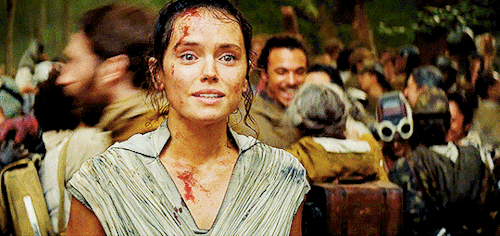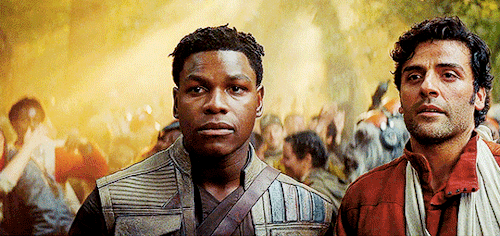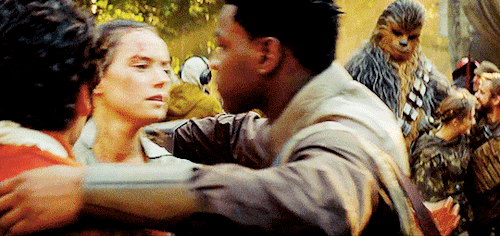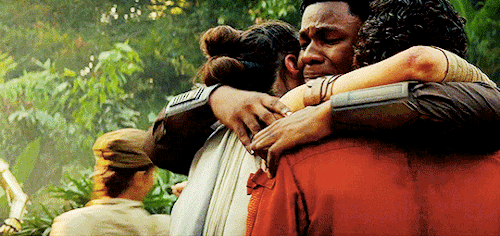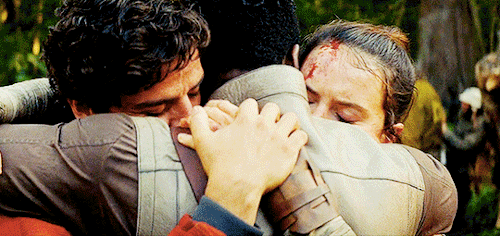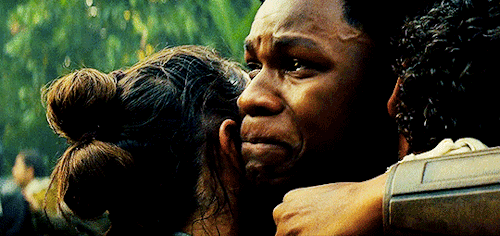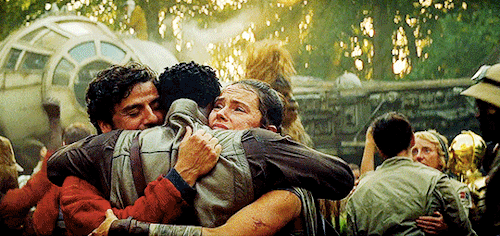Types Of Writer’s Block (And How To Fix Them)
Types Of Writer’s Block (And How To Fix Them)
1. High inspiration, low motivation. You have so many ideas to write, but you just don’t have the motivation to actually get them down, and even if you can make yourself start writing it you’ll often find yourself getting distracted or disengaged in favour of imagining everything playing out
Try just bullet pointing the ideas you have instead of writing them properly, especially if you won’t remember it afterwards if you don’t. At least you’ll have the ideas ready to use when you have the motivation later on
2. Low inspiration, high motivation. You’re all prepared, you’re so pumped to write, you open your document aaaaand… three hours later, that cursor is still blinking at the top of a blank page
RIP pantsers but this is where plotting wins out; refer back to your plans and figure out where to go from here. You can also use your bullet points from the last point if this is applicable
3. No inspiration, no motivation. You don’t have any ideas, you don’t feel like writing, all in all everything is just sucky when you think about it
Make a deal with yourself; usually when I’m feeling this way I can tell myself “Okay, just write anyway for ten minutes and after that, if you really want to stop, you can stop” and then once my ten minutes is up I’ve often found my flow. Just remember that, if you still don’t want to keep writing after your ten minutes is up, don’t keep writing anyway and break your deal - it’ll be harder to make deals with yourself in future if your brain knows you don’t honour them
4. Can’t bridge the gap. When you’re stuck on this one sentence/paragraph that you just don’t know how to progress through. Until you figure it out, productivity has slowed to a halt
Mark it up, bullet point what you want to happen here, then move on. A lot of people don’t know how to keep writing after skipping a part because they don’t know exactly what happened to lead up to this moment - but you have a general idea just like you do for everything else you’re writing, and that’s enough. Just keep it generic and know you can go back to edit later, at the same time as when you’re filling in the blank. It’ll give editing you a clear purpose, if nothing else
5. Perfectionism and self-doubt. You don’t think your writing is perfect first time, so you struggle to accept that it’s anything better than a total failure. Whether or not you’re aware of the fact that this is an unrealistic standard makes no difference
Perfection is stagnant. If you write the perfect story, which would require you to turn a good story into something objective rather than subjective, then after that you’d never write again, because nothing will ever meet that standard again. That or you would only ever write the same kind of stories over and over, never growing or developing as a writer. If you’re looking back on your writing and saying “This is so bad, I hate it”, that’s generally a good thing; it means you’ve grown and improved. Maybe your current writing isn’t bad, if just matched your skill level at the time, and since then you’re able to maintain a higher standard since you’ve learned more about your craft as time went on
More Posts from Lune-versatile and Others
The secret to avoiding annoyingly perfect characters is less about what they do, and more about what they think and feel. Show that they still want to slack off even if they end up doing what they’re supposed to. The actual plot difference between “I’ll do it, because it’s the Right Thing To Do™!” and “Ugh, fine, I guess I have to do it; it’s…like…the right thing to do, or whatever…” is negligible, but the characterization difference is huge.
Hacks For Writing
Writing (at least for me) is all about momentum. If you stop, you crash and burn. So, here are some hacks I use to keep myself writing.
-Instead of stopping to google information, like “How long does it take for trees to grow,” or “how many different species of birds of paradise are there, simply put "TK" in the spot where the units or information would be and move on. After you are done writing, you can go back and google for the needed information.
-In scenes where you simply cannot think of what to put, simply write something in brackets like, “[The characters reminisce with each other around the fire. This leads into the next topic.]” or something similar. Oftentimes, later writing will give you inspiration for what to put in those spots.
-If you can’t remember the word, or need a synonym, DON’T stop to google. Simply put the word (or “placeholder”) in brackets and come back later. If you are still having trouble finding out or remembering the word when going back through, I would recommend Onelook Reverse Dictionary as a very good source for finding words and synonyms.
-When plotting something out, don’t feel the need to put everything that happens. If you want to, cool! For me, I find I quickly lose disinterest in actually writing when I have every little thing already planned out. It has become boring to me. To combat this, I simply write the main ideas of what I want to happen and things I want to mention (symbolism/foreshadowing) and move on, giving myself room to continue to explore and discover as you write.
-To avoid burnout, If I’m working on a bigger project, I’ll usually also have something that I’m writing on the side that I can switch back and forth so I don’t lose interest.
-Don’t be afraid to use generators! Character names, places, powers, etc. can all be created using a generator. You don’t have to worry about every little thing. Also, if you can’t think of a name or something else at the moment that you could use a generator for, just mark it in brackets (ex: [Name]) and move on.
Lastly, remember that everything you write is for yourself. Having others validate you is always great, but they are the ones who have the privilege of reading your works. You don't owe them anything.
how to start reading again
from someone who was a voracious reader until high school and is now getting back into it in her twenties.
start with an old favourite. even though it felt a little silly, i re-read the harry potter series one christmas and it wiped away my worry that i wasn't capable of reading anymore. they are long books, but i was still able to get completely immersed and to read just as fast as i had years and years ago.
don't be afraid of "easier" books. before high school i was reading the french existentialists, but when getting back into reading, i picked up lucinda riley and sally rooney. not my favourite authors by far, but easier to read while not being totally terrible. i needed to remind myself that only choosing classics would not make me a better or smarter person. if a book requires a slower pace of reading to be understood, it's easier to just drop it, which is exactly what i wanted to avoid at first.
go for essays and short stories. no need to explain this one: the shorter the whole, the less daunting it is. i definitely avoided all books over 350 pages at first and stuck to essay collections until i suddenly devoured donna tartt's goldfinch.
remember it's okay not to finish. i was one of those people who finished every book they started, but not anymore! if i pick up a book at the library and after a few chapters realise i'd rather not read it, i just return it. (another good reason to use your local library! no money spent on books you might end up disliking.)
analyse — or don't. some people enjoy reading more when they take notes or really stop to think about the contents. for me, at first, it was more important to build the habit of reading, and the thought of analysing what i read felt daunting. once i let go of that expectation, i realised i naturally analyse and process what i read anyway.
read when you would usually use your phone. just as i did when i was a child, i try to read when eating, in the bathroom, on public transport, right before sleeping. i even read when i walk, because that's normally a time i stare at my screen anyway. those few pages you read when you brush your teeth and wait for a friend very quickly stack up.
finish the chapter. if you have time, try to finish the part you're reading before closing the book. usually i find i actually don't want to stop reading once i get to the end of a chapter — and if i do, it feels like a good place to pick up again later.
try different languages. i was quickly approaching a reading slump towards the end of my exchange year, until i realised i had only had access to books in english and that, despite my fluency, i was tired of the language. so as soon as i got back home i started picking up books in my native tongue, which made reading feel much easier and more fun again! after some nine months, i'm starting to read in english again without it feeling like a huge task.
forget what's popular. i thought social media would be a fun way to find interesting books to read, but i quickly grew frustrated after hating every single book i picked up on some influencer's recommendation. it's certainly more time-consuming to find new books on your own, but this way i don't despise every novel i pick up.
remember it isn't about quantity. the online book community's endless posts about reading 150 books each year or 6 books in a single day easily make us feel like we're slow, bad readers, but here's the thing: it does not matter at all how many books you read or what your reading pace is. we all lead different lives, just be proud of yourself for reading at all!
stop stressing about it. we all know why reading is important, and since the pandemic reading has become an even more popular hobby than it was before (which is wonderful!). however, there's no need to force yourself to be "a reader". pick up a book every now and then and keep reading if you enjoy it, but not reading regularly doesn't make you any less of a good person. i find the pressure to become "a person who reads" or to rediscover my inner bookworm only distances me from the very act of reading.
How do you write scenery. I always having trouble writing a place where the characters is. Like do I have be specific around the surrounding or just say where it is.
Describing the Setting of a Scene
You should always do some level of description of the setting of a scene. If it's an area the reader can easily envision, either because you've already described it in a previous scene or because it's a common place like a school or grocery store, you only need to include a few relevant details. Here are posts from my description and world building master lists that may help:
The 3 Fundamental Truths of Description (5 Tips for Cutting Back) How to Make Your Description More Vivid Adding Description to Your Writing Five Things to Help You Describe Fictional Locations
I hope that helps!
•••••••••••••••••••••••••••••••••
Have a writing question? My inbox is always open!
Visit my FAQ
See my Master List of Top Posts
Go to ko-fi.com/wqa to buy me coffee or see my commissions!
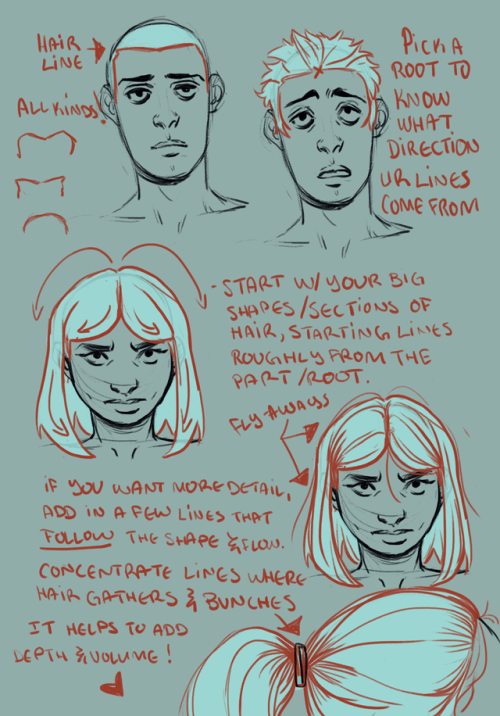
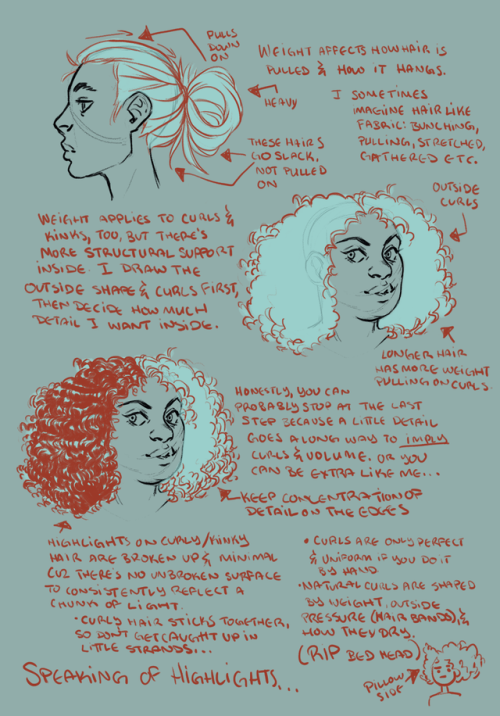
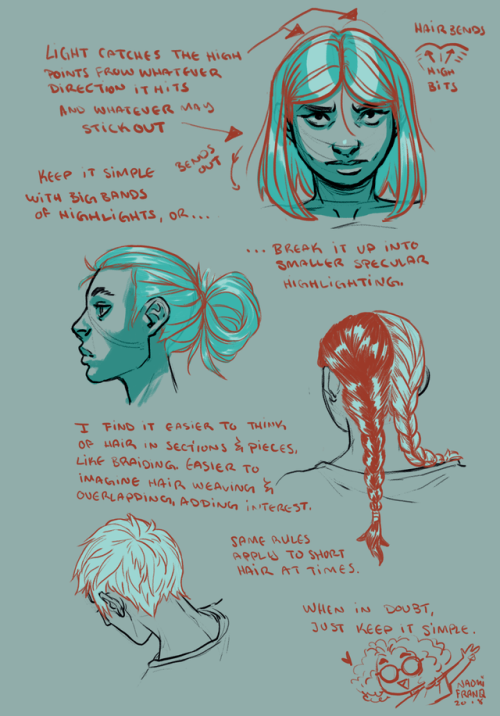
I jotted down for a friend of mine some tips and notes on how I approach drawing hair, and things I keep in mind while doing so, and thought I’d share. There are loads of other ways to do it, and the learning never stops, so I hope this helps!
opens box that reads "i wanna draw again". inside lies a note. the note says, "mental illness and difficult circumstances have taken years of interest, accessibility, and skill away from me. i want to forgive myself for that. i want to heal my relationship to my hobbies. i want to feel connected to something that once made me feel good, but the cyclic discouragement is difficult to overcome." i turn over the note. on the back it reads "wannta drawe sexy bodies awooga"
When I started writing fanfiction like ten years ago, dialogue was absolutely my weakest point. And I knew it. Character voice was a struggle, I used more ellipses than words probably, I just tried to lean on narration instead.
Fun to reflect and realize what a 180 I did on that. Cuz frankly dialogue is a DELIGHT and the best part of writing now. I love strong character voices. I love making characters trip over their words and talk over each other and go on tangents and lose their point and snark and snap at each other and crack wise and just, I love thinking about how dialogue sounds, and what feels most organic.
Description and narration are all still well and good, but it’s like those are the framework and scaffolding to set characters up to just say shit. I LOVE making characters just say shit. The truest delight of fanfic.
how to create a high fantasy politics reference doc (with a template and guide!)
political fantasy is an extremely fun genre to write in, that is, until you have to actually write the politics. in this semi-requested guide, i'm going to explain to you how i virgo-planned my way to a horribly detailed—though also horribly helpful—political reference doc for my one and only wip, a treatise of tyrants and thieves.
if you too would like to use a similar format to what i did (though consequently you will have to change it to fit your own worldbuilding), i have a template for dropbox paper right here.
as a sidenote, i do recommend already having built up a decent amount of your world before jumping into this; this document is meant to help flesh out pre-existing content in such a way that is really hard to do with a wip that's just starting out.


setting up.
Generally speaking, when I first began writing this doc, I was mostly doing so in relation to the government of the country wherein my WIP takes place and its relationship with other countries (or nations!), with its own people, and within itself. This then lead to my three, aptly-named subcategories; External, Internal, and Personal Relations (I'm very creative as you can see.)
These three subcategories became my main headers, and all of my organization took place within a Dropbox Paper doc—as I am partial to the cleaner interface and very easy creation of a table of contents—but using Word or Google Docs works just as well. With that, and a lot of pain and suffering in the form of preexisting worldbuilding, I started to flesh all the info out.
You should note that the country AToTaT takes place in a country called Vsyhna (vuh-sen-uh) and its government is referred to as the Dual Courts. This is also a forewarning, for the fact that I will probably be talking about my own worldbuilding quite a bit, if not only for purposes of giving proper examples!
So without any more notes from me, let's properly jump into this thing.

external relations.
The external relations between the Dual Courts and all the other governments within Ashvayr (the continent that Vsyhna is a part of), of which there are eleven, can be described in one of the following ways:
✅ = Allies
⚠️ = Allied by treaty, with tensions
❎ = Not allied, but no real tensions
✴️ = Not allied, but with tensions
⛔️ = Enemies
All of these relations should be taken with a grain of salt, and also adapted to fit your worldbuilding, of course, but as a general consensus, most governments will have one of those relationships with another. The emojis are used so that it's easily identifiable (I'm also insane, let's not forget), but emojis don't replace discussion.
Within each section, I discussed the relationship between these governments but also gave a quick list of bullet points that explained important moments in recent history that have created those tensions—or lack thereof—the current political state in each country, certain cultural tidbits, and cultural differences between Vsyhnians and others.
Generally, this isn't the stuff you want to get lazy with, and while it is fine to say something like "Oh they live across the world my mc's won't know this." It's better to have the ability to even subtly suggest other people, cultures, or ideologies. It deepens your world, and more than this, can be super interesting to readers. You should also note that this information should affect your characters in some way, otherwise the politics are going to be very boring (as they don't relate to anyone.)
This alternated between something as complex as gender politics, to things as simple as cuisine or trade goods. Indeed, you don't have to cover every base with these descriptions, arguably, this is the part you should spend the least amount of time on (unless you're braver than a U.S. marine and do, in fact, wish to take on international relations), but you should cover every important base.
For a slightly more simple example, let's look at the Empire of Sansryn. I wrote: "The Empire of Sansryn ⚠️ is an archipelago that is composed of two main ethnic groups; the Sansrynians, who occupy the northern half of the islands, and the Tarimese, who occupy the southern half of the islands." Then continued to briefly describe the relationship between Sansryn and Tarim.
The next two paragraphs were designated to a) their relationship with Vsyhna (which as you can see with the ⚠️ emoji is not great) and b) their relationship with other countries around them, not forgetting why it's so poor in the first place, which, spoiler, has to do with a number of social issues.
Also in the case of Sansryn, one of my side characters is half Sansrynian, which is something I noted mostly for the purposes of clarifying this character's relationship with this part of their identity and culture.
Realism is, quite frankly, optional in fantasy (or rather, you define what "real" actually means) but I do tend to strive for realism within AToTaT's politics, if not only because it's fun. When delving into (rightfully!) complex issues—like ethnic conflict for example—it's necessary to do your homework (and hire sensitivity readers afterward) if it's not a topic you are familiar with or related to. However, that exact process is not something I will be discussing in this post and I encourage you to do your own research.
You also want to take into consideration how these countries are related to each other. For me personally, I almost exclusively did this for the two current conflicts (i.e. actively disputed treaties, current armed conflicts) within the world, but I did briefly touch on how those relationships came to be, as you can see above.

internal relations.
Internal relations is where things start to get more complex and also more specific to the world my WIP takes place in. For this section, you need to have already realized a great deal in regards to major political institutions (if you have them!) and most importantly, cultural attitudes.
I split my internal relations section into seven sub-sections, which included: Social Cleavages, Justice System, Garrison, Navy, Cults vs. Church, Crime, and Trade.
For a Wikipedia definition, a social cleavage is "a historically determined social or cultural line which divides citizens within a society into groups with differing political interests, resulting in political conflict among these groups." AKA sexy, sexy plot tension.
The social cleavages of Vsyhna mostly revolve around social class (in-world called "rank"), an urban/rural divide, and nationality, which I note as being "considerably not a social cleavage." It appears I should have listened to my Wikipedia-defined advice. That said, rank was described at length for its importance to the religion, general structure within government, linguistic flavor (dialects!), and laws. It's one of my largest social themes and connects to almost everything within the book, including the magic system.
Speaking of magic, as I didn't mention it within my seven sub-categories above, I should note that however magic works in your society should also be included. In my case, it's heavily intertwined with religion and social class (access to the information that allows people to use magic, I mean) and so I didn't feel the need to clarify its role with an entirely new section, but how you do this is entirely up to you. It's also up to you to include a magic system, as in reality, you don't necessarily need one. I also have a completely separate Dropbox doc for most of these things anyway (re:knowing stuff before you jump into this.)
The justice system is something I find is often not immediately thought about when it comes to fantasy, but from a very general point of view, this also encompasses subjects such as law codes, the punishment for breaking those codes, and what trials look like, if you have them. This can tell us much about your culture, what they value, and more importantly, how much they value it.
For example, continuing with my themes of classism, sumptuary laws are a large part of Vsyhnian society, i.e. laws that forbid the usage of certain goods to lower classes. Given that it's illegal for someone of lowborn status to have, let's say silk, it creates a) a prime criminal market (trading "illegal" goods), b) a need to crack down on this market, and c) further severs the relationship between upper and lower classes, given that the fairness of the justice system is then put under scrutiny. Indeed, the fact that it's the Church that controls the justice system, you have a similar tension in the department of faith, and I haven't even begun to talk about how the treatment during trials differs.
I often find military to be the greatest emphasis within quite a lot of political fantasy, that being, the mobility of large land armies or prowess at sea. For me personally, I find this to be rather boring (both on accounts of reading and writing) so I did come at this with a lens of interest in the personal relationships of these people and actual organization within the military. Mostly, I used what I knew from external relationships and current conflicts to create something that could be used later on if I needed it, as it's not heavily featured (at least not in the first book!) Treaties, blockades, relationships between commanding officers, and relationships with piracy.
On notes of realism, I went with the very classic These Island People Have A Great Navy, as, historically, they tend to.
We should all know by now how important religion, or lack thereof, is in epic fantasy, and while I could go on about this for several hours, this is a political relations doc, so I focussed on the tension between sects of the main religion. How different leaders within the religion interacted with other members of government is a topic for personal relations, however, if not only because they're heavily featured, and there are several (about nine actual descriptions.)
This culminated by way of cults vs. the Church, differing ideologies within fundamental concepts of the religion, and generally how they're seen by Vsyhnian society (and—you guessed it—social class.) As an example, I wrote, "All of these organizations consider the Holy Book Rovnokh to be canon and true within their faiths, though it is the Codex Drkha that is often disputed in validity. This is the result of their own written dogma, which may convey entirely different personalities and oblation tales, or emphasis on a very specific aspect of the mortal godchild then how they are presented in the Codex."
It is important to consider, before even delving into differences, what the fundamentals of each sect or division within your religion are speaking on. Think of the historical context that may have brought about such a concept, or even fuzzy lines within canon texts. Here's another example, "The seventh mortal godchild is not mentioned within the Codex and therefore not considered a valid mortal godchild, though Vrah’s appearance in the Holy Book and the Children of the Bone’s own text—which are older than the Codex—say otherwise. 'Vrah' is more used as a term to describe magic and not at all a person, when it is mentioned in the Codex."
Crime and trade, as you can imagine in a society plagued by rules that dictate trade—and in many cases make the trade of certain items a crime—is quite important. As I hinted earlier in the justice system section, the "illegal" trade of certain goods, which goes against sumptuary laws. That said, crime happens for a number of different reasons, and I took the time here to think about partner organizations, illegal magic producers, and gangs.
Crime can actually be an excellent tool of worldbuilding, if not only for the fact that it is so specific to the country and history it resides in. Why does something need to be stolen? Fabricated? Spied on? And who is getting the most out of it?

Trade was something I rather lazily did with the above Vsyhnian roadmap—I don't plan on discussing economics at all, nor following merchants as they move goods though the country.
I want to note once more that all of this is extremely relative information; what you need to write about to create political tension is entirely up to you and your story. As a general bit of advice, however, it is helpful to ensure that everything can come back around to your characters—if not now, then at some point within the series or story as a whole. Politics can become boring very easily, especially when not personal.

personal relations.
For our final and most interesting section, I did two, somewhat important things before actually writing anything out; that being creating two charts. The first is a political alignment chart, the second is a chart that defines the different positions of government. While again, this is totally relative, this is what I came up with:

Take the time to think about and research other forms of government, what each "branch" might do, and how they do it. More importantly though, think about how the culture and religion would, can, or do influence the government, and how the government has responded to such action. Look to history especially!
The charts allowed me to very easily place my main characters, their families, and all the previous groups of people (gangs, cults, social classes) into categories that can then, more or less, directly define their relationships with one another. This made the process that I will now describe to you a little less tedious.
I divided this category into three sections: Nobleborn Houses (that being houses of great import and high rank), the Prelacy (leaders of the Church), and Others of Note.
There are ten nobleborn houses, however, I only did mass amounts of details for five of the most important. I should also note that two of my four main characters are a part of two of these houses, and it's for that reason that I felt I needed to be as in-depth as possible. For Houses, the organization went something like this:
House Name:
A general description of the house, its history, and how it rose to power, as well as what they generally control within the government or country and how long they've had this position.
Try to be as diverse as possible within these descriptions—cover a lot of different bases and don't be afraid to do it! A family rising to power as a result of the money they, for example, gained from growing roses says a lot about the culture and commerce of a particular country.
Public Opinion:
What the people think of this family, given all social standings and occupations. Naturally, when I say all, I don't mean think about what every carpenter thinks of the royal family, I just made sure it was a general consensus!
Opinion of the Other Five Houses:
This, I tended to keep as short as possible, but like the external relations above, I wanted to know what and how the relationship was what it was. For several, I already had an idea, but for...so many more I did not (hear the pain in my voice? there's pain in my voice.)
Opinion of the Remaining Houses:
Shorter than even short as possible, but the same idea as before.
Main Members:
Probably one of the more important sections; I listed out all the members of the main part of the family, that is, the immediate family of the person involved in government (or main character.) This not only defines your side characters—of which there are bound to be many—but also clarifies the conflicting motives of the people in charge. And they should conflict, hopefully with the motives of your main characters. Extended family was discussed when important, such as prominent aunts, uncles, or grandparents, but for sake of simplicity, lengthy descriptions were kept for parents and children.
I also included charts after this about minor houses sworn to these noble houses, but to be completely honest, I didn't fill out most. That said, I did repeat this process for all five houses, and the good news, is that after you talk about the relationship with one of the other five, you're done completely, so, yay one less bullet point each time. Also, don't feel pressured to have a name for everyone or everything! In fact, I mostly skip over names of people unless I really have to know them in text, far more characters are simply [BROTHER] or [PARENT], though this could be a laziness thing. Or a conlang one.
A worldbuilding note: I also included house colors, sigils, and heads in this instance, as well as their connection to certain magical oaths.
For the remaining five nobleborn houses, I only listed house heads, sigils, and colors, if not only because I described their relationship with everyone else, earlier. That said, I also included house heir and extra notes, if I needed them.
The Prelacy was organized slightly differently, as important members of the Church, they don't necessarily have family members interacting with them. Instead, I focussed on backstories, their relationships with the Arkan (the monarch, sort of), and once more, motive (and personalities, given that I don't give side characters a full oc profile.)
As shown in the chart above, there is one High Vokhsv and six Vokhvs that work under them; the former had a more in-depth section of text, however, the six got just about as much detail as the lesser five noble houses.
My last and final section was short and sweet (thank God) and covered two topics very briefly, that are so world-specific I won't even bother explaining them. That said! That's what this section is for; anything else that you might have missed.
I won't lie, the personal relations section was probably the most time-consuming part of this entire doc, but in the end, it did pay off. The entire thing took about from the 22nd of February to the 18th of April, and came out to around 30k. Do I suggest you also write this much? Not unless you feel like you need it. I don't really plan out plot, so for me, this was my plan, hence the length and detail.
Thank you so much for reading! I hope you enjoyed this far too long breakdown of my political reference doc of my WIP, A Treatise of Tyrants and Thieves and good luck with your own process, writing, and research <3

references.
Some links I found helpful:
The template link, once more ($1).
Brandon Sanderson's 2020 creative writing lectures (YouTube)
Designing a fantasy legal system (Worldbuilding Stack Exchange)
Unpacking Folk Tales/Motif Index (Uni. of Alberta)
Real Inequality in Europe since 1500 (Journal, PDF)
Diplomacy (Wikipedia)
Public Diplomacy in Early Modern Europe (Journal)
The Spy Chiefs or Renaissance Venice: Intelligence Leadership in the Early Modern World (Oxford Brookes Uni., PDF)
Branches of the U.S. military (SOU)
those who were interested.
@chovansjtsjina @zielenheil @lord-fallen @ninazeniks @viesceral @introverteddumbass @wisteria-eventide & anyone else, feel free to reply, send an ask, or dm me about questions!
please please please please reblog if you’re a writer and have at some point felt like your writing is getting worse. I need to know if I’m the only one who’s struggling with these thoughts
-
 franini liked this · 4 days ago
franini liked this · 4 days ago -
 manoonwrites reblogged this · 1 week ago
manoonwrites reblogged this · 1 week ago -
 antihell liked this · 1 week ago
antihell liked this · 1 week ago -
 comicgoth666 reblogged this · 1 week ago
comicgoth666 reblogged this · 1 week ago -
 comicgoth666 liked this · 1 week ago
comicgoth666 liked this · 1 week ago -
 heckcareoxytwit reblogged this · 1 week ago
heckcareoxytwit reblogged this · 1 week ago -
 chcmpagnes liked this · 1 week ago
chcmpagnes liked this · 1 week ago -
 lovely-moongal liked this · 1 week ago
lovely-moongal liked this · 1 week ago -
 quoinie liked this · 1 week ago
quoinie liked this · 1 week ago -
 lanternlint-lint liked this · 1 week ago
lanternlint-lint liked this · 1 week ago -
 tatsumisheep3 reblogged this · 2 weeks ago
tatsumisheep3 reblogged this · 2 weeks ago -
 crimewp liked this · 2 weeks ago
crimewp liked this · 2 weeks ago -
 1800monarch liked this · 2 weeks ago
1800monarch liked this · 2 weeks ago -
 yotak9 liked this · 2 weeks ago
yotak9 liked this · 2 weeks ago -
 grimacex liked this · 3 weeks ago
grimacex liked this · 3 weeks ago -
 poeticastrophile liked this · 3 weeks ago
poeticastrophile liked this · 3 weeks ago -
 mr-awesomesauce liked this · 1 month ago
mr-awesomesauce liked this · 1 month ago -
 nerdyninjakitty liked this · 1 month ago
nerdyninjakitty liked this · 1 month ago -
 reniessanxe liked this · 1 month ago
reniessanxe liked this · 1 month ago -
 eboyxi reblogged this · 1 month ago
eboyxi reblogged this · 1 month ago -
 eboyxi liked this · 1 month ago
eboyxi liked this · 1 month ago -
 nyxiee-mnl-lght liked this · 1 month ago
nyxiee-mnl-lght liked this · 1 month ago -
 amirathaliasgf liked this · 1 month ago
amirathaliasgf liked this · 1 month ago -
 legendzjagz liked this · 1 month ago
legendzjagz liked this · 1 month ago -
 galascarlet reblogged this · 1 month ago
galascarlet reblogged this · 1 month ago -
 calpicocritter liked this · 1 month ago
calpicocritter liked this · 1 month ago -
 bloodpxct liked this · 1 month ago
bloodpxct liked this · 1 month ago -
 vinyth liked this · 1 month ago
vinyth liked this · 1 month ago -
 0tenn01 liked this · 1 month ago
0tenn01 liked this · 1 month ago -
 morgoonie liked this · 1 month ago
morgoonie liked this · 1 month ago -
 cj-mystupidlife liked this · 1 month ago
cj-mystupidlife liked this · 1 month ago -
 mortallysparklypen reblogged this · 1 month ago
mortallysparklypen reblogged this · 1 month ago -
 impossiblewolf reblogged this · 1 month ago
impossiblewolf reblogged this · 1 month ago -
 impossiblewolf liked this · 1 month ago
impossiblewolf liked this · 1 month ago -
 jyae23 liked this · 1 month ago
jyae23 liked this · 1 month ago -
 notamethyst26 reblogged this · 1 month ago
notamethyst26 reblogged this · 1 month ago -
 notamethyst26 liked this · 1 month ago
notamethyst26 liked this · 1 month ago -
 devlin-000 liked this · 1 month ago
devlin-000 liked this · 1 month ago -
 mrstarkitsmellslikeanewcarinhere liked this · 1 month ago
mrstarkitsmellslikeanewcarinhere liked this · 1 month ago -
 onyxthewriter1041 liked this · 1 month ago
onyxthewriter1041 liked this · 1 month ago -
 yinyqngg liked this · 1 month ago
yinyqngg liked this · 1 month ago -
 dragonessfire liked this · 1 month ago
dragonessfire liked this · 1 month ago -
 basementj4cksucks liked this · 1 month ago
basementj4cksucks liked this · 1 month ago -
 thewinter22 reblogged this · 1 month ago
thewinter22 reblogged this · 1 month ago -
 thewinter22 liked this · 1 month ago
thewinter22 liked this · 1 month ago -
 banshee-barclay liked this · 1 month ago
banshee-barclay liked this · 1 month ago
